Life
-
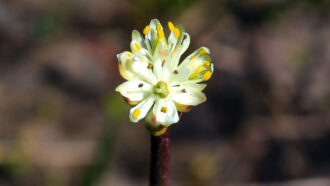 Plants
PlantsWell-known wildflower turns out to be a secret meat-eater
Look closely at Triantha occidentalis, and you’ll see gluey hairs — and a trail of insect corpses on its stem.
-
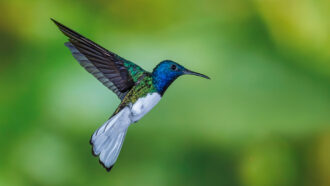 Animals
AnimalsAnalyze This: Some female hummingbirds go undercover
Some female white-necked jacobin hummingbirds boast bright blue colors similar to males. That may help females blend in to avoid attacks.
-
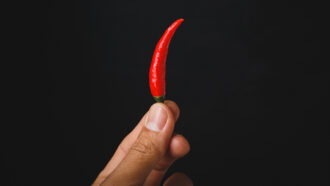 Health & Medicine
Health & MedicineA 2021 Nobel goes for discovering how our body reads touch sensations
David Julius and Ardem Patapoutian found nerve-cell sensors for temperature, pain and pressure.
By Tina Hesman Saey and Freda Kreier -
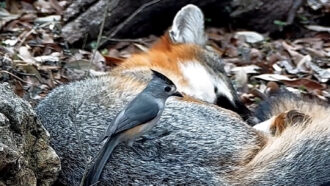 Animals
AnimalsThere’s a new word for birds stealing animal hair: kleptotrichy
Dozens of YouTube videos show birds grabbing hair from dogs, cats, people, raccoons and even a porcupine — a behavior rarely described by scientists.
-
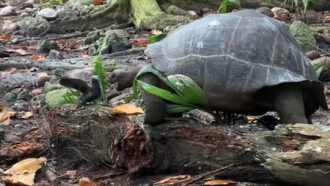 Animals
AnimalsA giant tortoise is caught hunting and eating a baby bird
New video captures the first recorded instance of a tortoise hunting another animal.
-
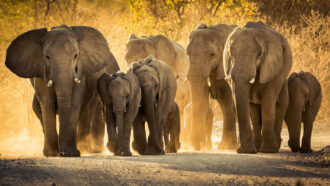 Animals
AnimalsLet’s learn about elephants
Check out five wild facts you may not know about a familiar animal: the elephant.
-
 Environment
EnvironmentCheatgrass thrives on the well-lit urban night scene
Middle-grade campers team up with ecologists at Denver University to show that streetlights boost the growth of a reviled invasive species.
-
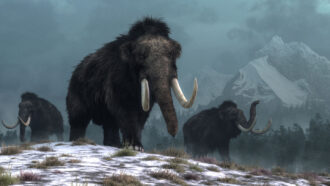 Animals
AnimalsWill the woolly mammoth return?
Scientists are using genetic engineering and cloning to try to bring back extinct species or save endangered ones. Here’s how and why.
-
 Animals
AnimalsCloning boosts endangered black-footed ferrets
A cloned ferret named Elizabeth Ann brings genetic diversity to a species that nearly went extinct in the 1980s.
-
 Brain
BrainScientists Say: Haptic
Haptic is an adjective used to describe things related to our sense of touch.
-
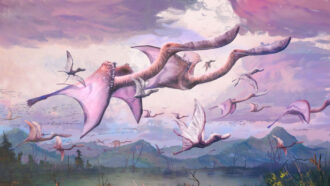 Fossils
FossilsBaby pterosaurs may have been able to fly right after hatching
A bone crucial for lift-off was stronger in hatchling pterosaurs than in adults. The baby reptiles also had shorter, broader wings than grown-ups.
-
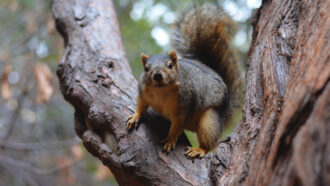 Animals
AnimalsSquirrels use parkour tricks to leap from branch to branch
Squirrels navigate through trees by making rapid calculations. They have to balance trade-offs between branch flexibility and the distance between tree limbs.